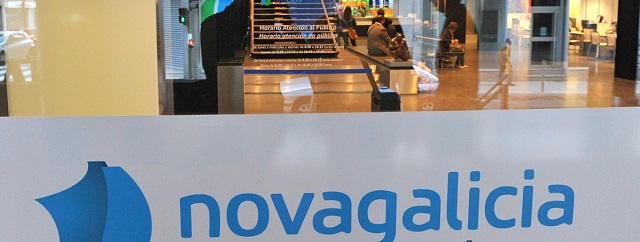Quiet, they may appear most of the times. But when Spain’s big bankers make a move, don’t expect much subtlety. Take for instance Emilio Botín, chairman of almighty Banco Santander, who during a conference hosted recently by his family foundation had these stark words about the national deposit guarantee pot injecting cash into the preferred shares abuse scandal: “Each bank must pay its own share. Santander has already sorted out its problems, and has done so swiftly. The entities that haven’t know they’ll have to.”
Or Francisco González, chairman of powerful BBVA, whose blatant ‘No’ to enter the so-called Spanish bad bank Sareb has slapped down the ministry of Economy and the Fund for Orderly Bank Restructuring (Frob) in several occasions.
The government of Mariano Rajoy has not had better luck with Ángel Ron of Banco Popular, or the Catalans, Josep Oliu of Banc Sabadell and Isidre Fainé of CaixaBank. Sources at the Spanish banking association (AEB) said that its president Miguel Martín has visited Moncloa palace–the prime minister’s official residence–to tell the cabinet that banks want the Bankia-NovaGalicia-CatalunyaBanc case closed for good. The AEB wants them dismantled or sold, as the toxic legacy of the savings banks has become too poisonous for too long.
Who can blame the–as they are nicknamed in Spain–Big Five? Only last year, provisions made by the banking system amounted to €115 billion or over 11 percent of the country’s GDP. It’s no wonder lenders that can stand up against the crisis without the recourse of taxpayers’ money feel it is unfair, and increasingly expensive, to keep alive the zombie remains of the troublesome cajas, whose rotten balance sheets bring investor mistrust over the whole sector.
The warning the European Commission issued this week seems to prove Big Five’s point. Banking restructuring and re-capitalisation show good progress, Brussels said, with a reduction of the number of entities by 50 percent since late 2009 and less European Central Bank credit needed. But “complacency” would derail these achievements.
Of course, the Spanish prime minister could respond that it is the Eurogroup the one kicking the can down the road of irresponsibility. Analysts from London to Madrid expect that today’s meeting in Dublin will conclude with a further delay of the Banking Union legislation, which is an inevitable step in the European integration path and also an inevitable condition for the euro rescue fund to directly finance weak banks in the common currency area. When tempted to blame someone else, though, Rajoy should take a moment and reflect on Botín’s successful philosophy: help only comes to those who do their homework.






Be the first to comment on "Spanish banks advise Rajoy to deal with Cajas’ toxic legacy now"